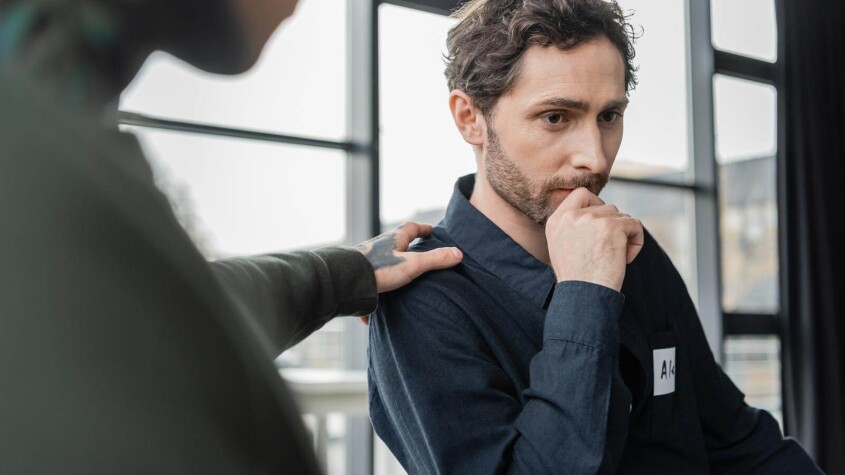Supporting a Loved One’s Substance Abuse Recovery
Tips for Supporting a Loved One in Addiction and Alcoholism Recovery

When someone we care about is on the path to addiction and alcoholism recovery, they need all the support they can get. As a friend or family member, you play a vital role in their journey toward healing and long-term sobriety. In this blog post, we will explore effective ways to support a loved one in addiction and alcoholism recovery. By understanding their needs, providing encouragement, and fostering a supportive environment, you can make a significant difference in their recovery process.
Educate Yourself About Alcohol And Other Addictions
- Learn about addiction and alcoholism as diseases, including their causes, effects, and treatment options.
- Understand the recovery process, including potential challenges, setbacks, and relapses.
- Familiarize yourself with available resources, such as support groups, counseling services, and treatment facilities.
Encourage Open and Safe Communication With Each Other
- Create a safe and non-judgmental space for your loved one to share their thoughts, feelings, and concerns.
- Listen actively and empathetically, without interrupting or offering unsolicited advice.
- Ask open-ended questions to encourage deeper conversations and understanding.
Provide Emotional Support While Setting Boundaries
- Be understanding and compassionate, recognizing that addiction and alcoholism recovery can be a challenging and emotional journey.
- Offer reassurance and encouragement during difficult times, reinforcing their progress and commitment to recovery.
- Avoid enabling behaviors or rescuing them from the consequences of their actions. Instead, encourage personal responsibility and accountability.

- Establish clear boundaries to protect your own well-being and maintain healthy relationships.
- Communicate your boundaries with love and respect, ensuring they align with your values and needs.
- Consistently reinforce these boundaries while expressing your support for their recovery journey.
Attend Your Own Support Group and Healthy Habits
- Accompany your loved one to support group meetings, such as Al-Anon or Alateen, where you can gain insights, share experiences, and connect with others in similar situations.
- Participate in family therapy sessions, which can help you understand and address the dynamics and challenges within your family unit.
- Promote a healthy lifestyle by engaging in activities that do not involve alcohol or drugs. Encourage exercise, nutritious eating, and engaging in hobbies or interests.
- Provide assistance in finding alternative outlets for stress, such as meditation, mindfulness, or counseling.
- Support their engagement in sober social activities and events.
Celebrate Milestones and Achievements While Avoiding Stigmatizing Language
- Acknowledge and celebrate your loved one’s milestones and achievements in their recovery journey.
- Recognize their efforts and dedication, no matter how small the accomplishment may seem.
- Offer encouragement and reinforce their belief in themselves.
- Use language that is non-stigmatizing and supportive, avoiding derogatory terms or labels.
- Educate others on the nature of addiction and alcoholism, dispelling myths and misconceptions.
- Avoid making judgments or blaming them for their past actions. Focus on their present progress and future potential.
Supporting a loved one in addiction and alcoholism recovery is a crucial role that requires understanding, empathy, and patience. By educating yourself, providing emotional support, setting boundaries, attending support groups, encouraging healthy habits, celebrating milestones, and avoiding stigmatizing language and judgment, you can contribute significantly to their healing process. Remember, recovery is a lifelong journey, and your unwavering support can make all the difference in their path toward long-term sobriety and a healthier, happier life.
Receive Support for Loved Ones of Those Affected by Addiction in New York, NY
The effects of addiction can be more widespread than one may think. This is why I’m happy to support those experiencing addiction in addition to their loved ones. As an addiction psychiatrist, I would be honored to be here for you as you work through the many complexities of addiction. You can start your therapy journey from my NYC, Manhattan-based practice by following these simple steps:
- Contact Stephen Gilman, MD
- Learn more about me and my approach to addiction treatment
- Start helping loved ones overcome addiction
Other Services Offered with Stephen Gilman, MD – Addiction Psychiatrist in NYC, Manhattan
I know that clients may experience more than one mental health concern at a time. This is why I’m happy to provide a variety of services in the realm of addiction treatment. I offer support with alcohol addiction, young adult psychiatry, and adult psychiatry. I’m also happy to offer prescription drug addiction treatment, cocaine addiction, meth addiction treatment, behavioral addiction treatment, PTSD treatment, drug addiction treatment, and marijuana addiction treatment. Learn more about me or visit my blog for more helpful info.




Trackbacks & Pingbacks
[…] The stigma of addiction can be a barrier to recovery, preventing individuals from seeking help and support. In this blog post, we will explore the impact of addiction stigma, discuss common stereotypes, and […]
[…] yourself with a supportive network of friends, family, and professionals who understand and encourage your recovery […]
[…] medications that treat withdrawal symptoms. Medication-assisted treatment (MAT) offers patients a chance at recovery after decades of failed attempts through traditional methods. Patients must work with a doctor who […]
[…] Additionally, while twelve-step facilitation treatment has been shown to be effective, it is not always the best option for everyone. Some people may prefer other methods of recovery, such as therapy or medication. Ultimately, it is up to the individual struggling with alcoholism to decide what method of recovery will work best for them. Whether they turn to Alcoholics Anonymous, twelve-step facilitation treatment, therapy, or medication, there are plenty of options available. Stephen Gilman, MD is an addiction psychiatrist in Manhattan, NYC who helps his patients determine if the use of AA is right for their substance use recovery. […]
[…] taking steps to support your loved one, you can help them to get the help they need and begin their journey to recovery. As an addiction psychiatrist, I would be honored to support you in addressing addiction with loved […]
Comments are closed.